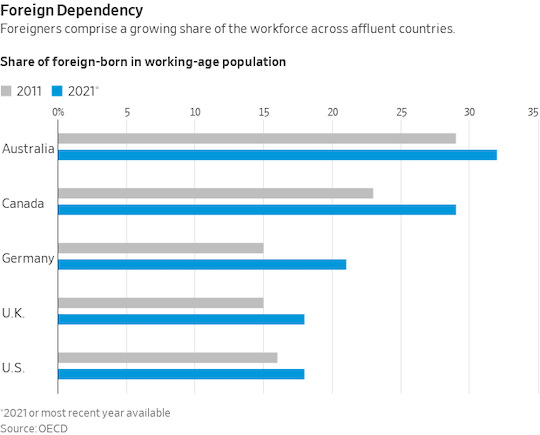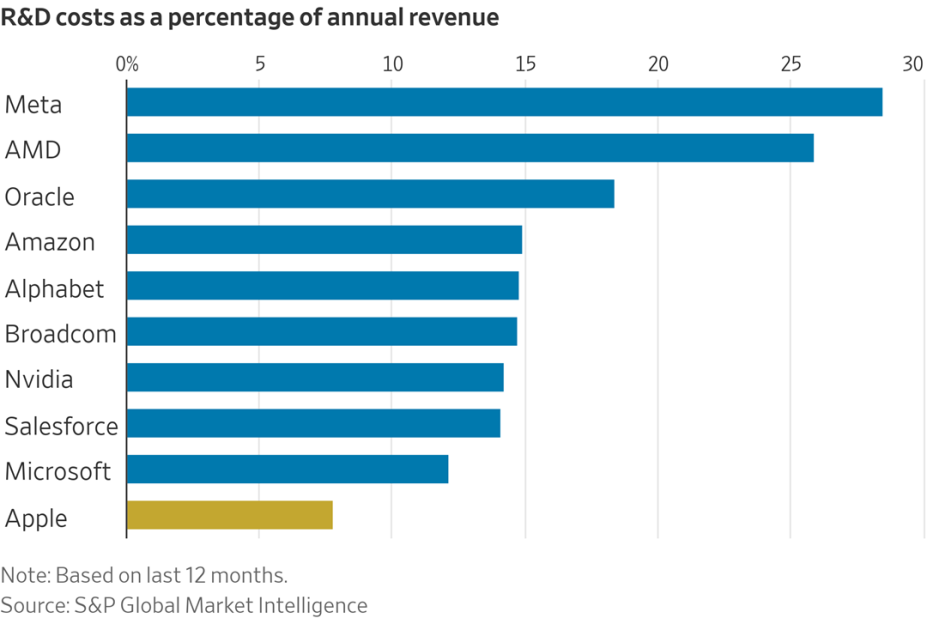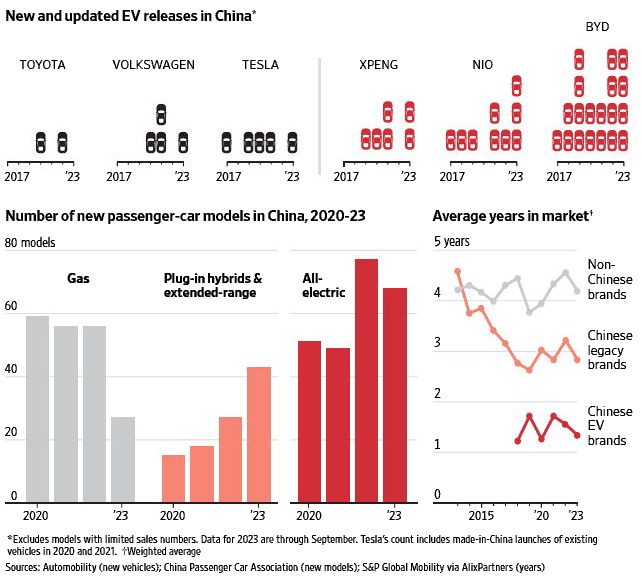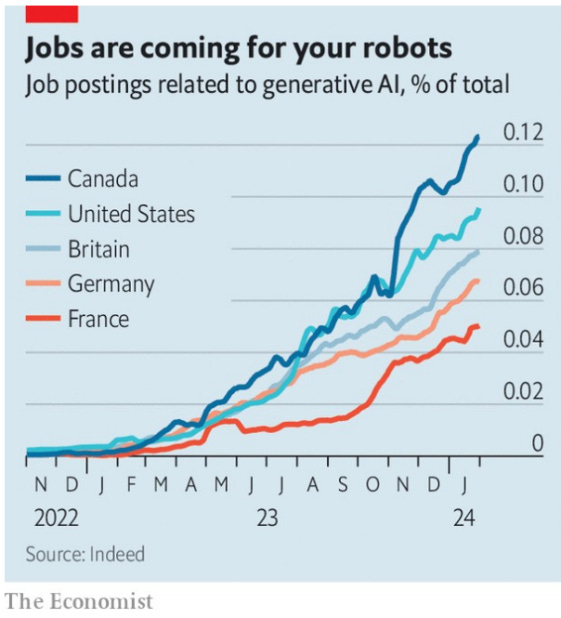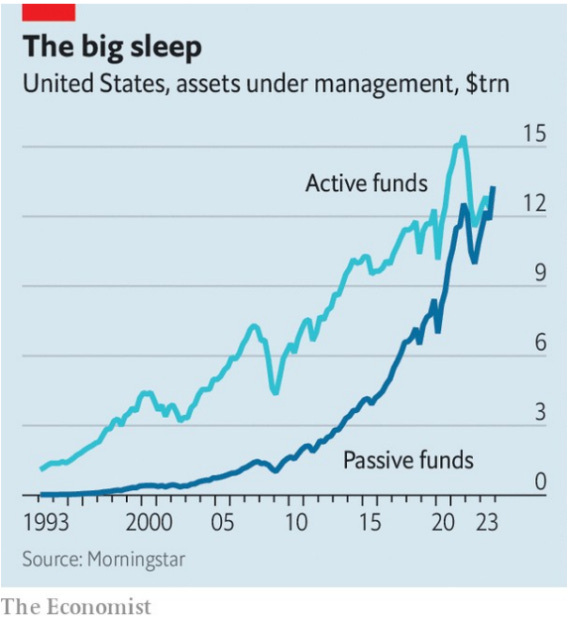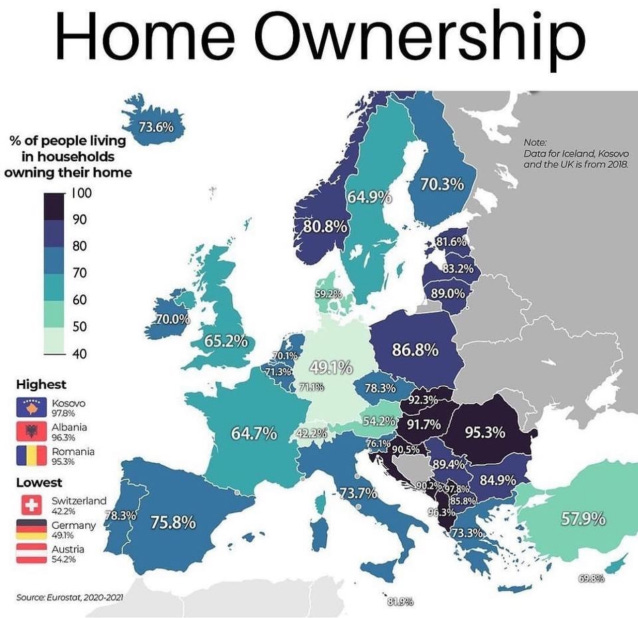Rich Countries Are Becoming Addicted to Cheap Labor. Businesses are relying more on migrant workers as labor shortages persist, but economists warn of long-term dangers
Apple faces an expensive game of catch-up when it comes to AI. While Apple’s R&D outlay of just under $30 billion last year was the fifth highest in the S&P 500, it represented less than 8% of its annual revenue—among the lowest proportion of major tech companies.
China is speeding ahead in the electric-vehicle race. Riding the nation’s EV boom, upstart automakers have eclipsed foreign rivals to develop cars faster, push the boundaries of smart tech and swamp consumers with choice. Chinese automakers are around 30% quicker in development than legacy manufacturers and foreign carmakers openly admit they are chasing the game, increasingly wary of Chinese rivals.
Тhe fintech company Klarna said last week its chatbot is doing the work of 700 human customer service agents - nearly two years after Klarna laid off about 700 people. The CEO explained that in the chatbot’s first four weeks, it had handled about 66% of its customer support or about 2.3 million chats. Klarna’s chatbot scored equivalent in customer satisfaction when compared to humans and also exceeded humans in some cases, reducing repeat inquiries and resolving problems in 2 minutes versus 11 minutes when compared to humans.
The number of circulating $100 bills has quadrupled this century. There are currently $1.85T of Benjamins in circulation. Perhaps going to a cashless society is a little harder than imagined. As the WSJ points out, thanks to inflation, a $100 bill is only worth $76 compared to a decade ago.
If 60 million adults are taking GLP-1s (Ozempic/Wegovy) by 2028, Goldman Sachs estimates it could add 1% to the US GDP by improving health outcomes enough to increase the labor force. The war between sugary snacks and weight loss drugs is really starting to heat up. Efforts such as a potential enzyme that turns sugar into fiber in the gut and supplements that act as a sugar sponge in the digestive tract are also underway.
The European Union fined Apple about $2 billion, saying the iPhone maker set unfair rules for developers of music-streaming apps. The fine was one of the EU’s largest- ever antitrust penalties. The move could mark the start of a wider battle between the bloc’s regulators and the tech giant.
Jeff Bezos is back on top. The Amazon founder is once again the world’s richest person, eclipsing Elon Musk and jumping atop the Bloomberg Billionaires Index for the first time since the fall of 2021. Bezos’ net worth was $200 billion on Monday, according to Bloomberg. Musk’s personal wealth was $198 billion and LVMH chief Bernard Arnault’s was $197 billion.
AI is most prevalent in big companies (with more than 250 employees), which can afford to enlist dedicated AI teams and to pay for necessary investments. A poll of large firms by Morgan Stanley, a bank, found that between the start and end of 2023 the share with pilot AI projects rose from 9% to 23%. JPMorgan Chase, said that the bank already had “more than 300 AI use cases in production today”. Capgemini, a consultancy, says it will “utilize Google Cloud’s generative AI to develop a rich library of more than 500 industry use cases”. Bayer, a big German chemicals company, claims to have more than 700 use cases for generative AI.
Last year the size of passive funds overtook active ones for the first time. The largest single ETF tracking the S&P 500 index has amassed assets of over $500bn. The clearest casualty of passive funds has been active managers. During the past decade the number of active funds focused on large American companies has declined by 40%.




